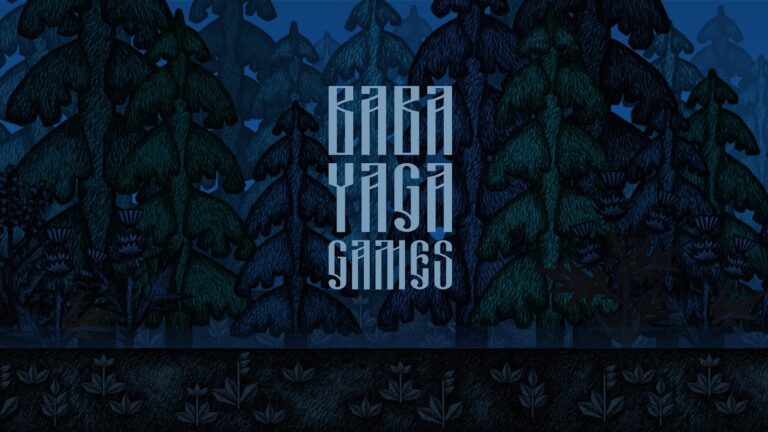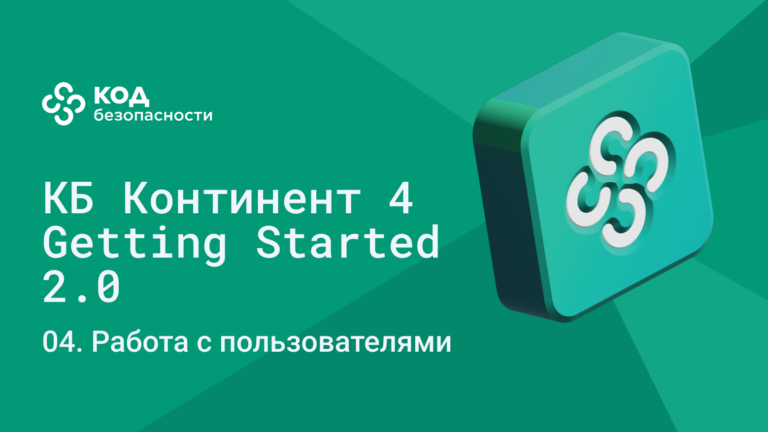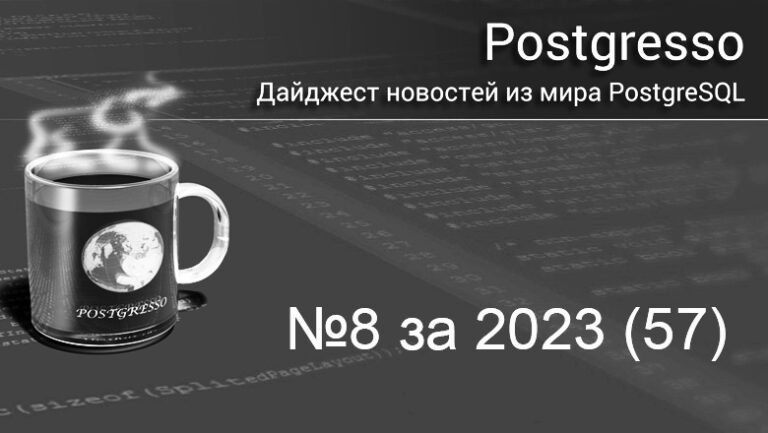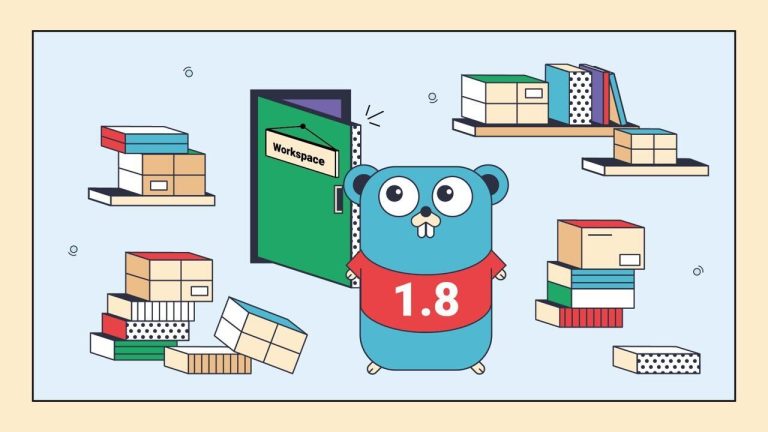personal experience of learning at the grande école and an overview of the higher school system
Hi all! I break my HABR radio silence to tell you about my experience of studying in a French engineering master’s program. Subscriptions, comments, like in karma, “bell” 🙂
France is not the most popular destination for a master’s degree for a number of reasons, and when I started my journey, I really lacked the experience of “experienced”. I wanted to make sure that this is real, no one died from the master’s degree in France and everything is fine 🙂
The study took place in the 2021-2022 academic year, when many restrictions on COVID-19 had already been lifted in France, and classes were held in classrooms, and not online, as in the midst of the pandemic. I had a dual Erasmus Mundus program, in which I spent my second and final year at a French university. Here was the writing of the thesis and defense.
The education system in France is quite confusing. If some similarities can still be distinguished for school education (Ecole maternelle – kindergarten, Ecole primaire – junior classes, Collège – middle classes, Lycée – senior classes), then there are three different combinations for the “tower”. At the age of 17, every young Frenchman, just like Ilya Muromets at a crossroads, must choose one of three paths:
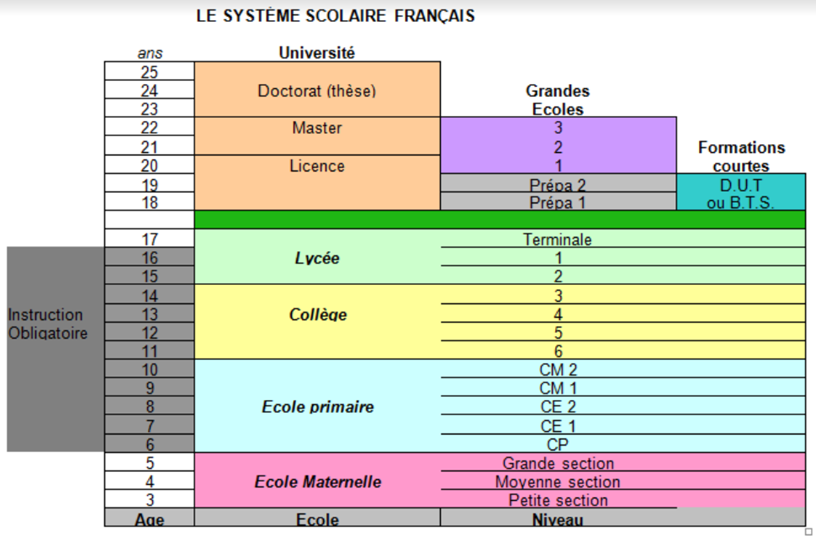
a visual diagram of the division of the French education system into three “streams”
From my conversations with French acquaintances, I realized that the most common route for engineering specialties is the path through the Grand écoles. Studying at higher schools in France is considered the most prestigious education option, which subsequently provides an advantage in employment and status in society. The system of organization of higher schools is unique for France and is difficult to translate into the usual stages of the Bologna system. This complexity is due to the historicity and elitism of higher schools. First introduced after the French Revolution in 1794, they aimed to provide access to high-level education (the first professors were eminent mathematicians and scientists such as André-Marie Ampère and Jean-Baptiste Joseph Fourier) based on exceptional academic merit. These principles are still followed today.
Higher schools are divided into a number of broad categories
- Higher Normal Schools
- Schools of Engineering (grandes écoles d’ingénieurs)
- Business schools (grandes écoles de commerce)
- Grandes écoles without preparatory classes
- Universities that have joined the Conférence des grandes écoles
- Schools of Political Studies, Social Sciences and International Relations
- Military officer academies
- Schools of Communication, Journalism and Media
The principle of learning is the same for all areas, but I will only speak in the context of engineering. Students who want to connect their lives with technical sciences must first study for 2 years in specialized training classes (CPGE – Classe préparatoire aux grandes écoles). The colloquial abbreviation “prépas” (“prepa”) is often found, and enrollment in courses is carried out through the passing of a competitive exam (“concours”). Upon completion of these classes, students take a new exam for admission to the Grand écoles, which lasts for them three years and is equivalent in the international system to a Master of Science degree.
The prepa workload is one of the highest in Europe, ranging from 29 to 45 contact hours per week, including up to 10 hours of lectures and oral exams. Then – the national exam, consisting of a series of written and oral tests, appropriate to the specifics of the school. Based on the results of the exam, the student receives the final national rating, which determines further enrollment in higher schools. A similar intensity of study to that of the prepa continues in the grande école itself. The rigor in the selection of future students and the intensive training program determines the prestige of the education received there and is a kind of “quality mark” for graduates.
Given such a strong preparatory base for students, higher schools do not require a long introduction to the subject. Here, for students who have not passed prepa, difficulties begin. For me, of course, it was a real challenge, because. even the system of notation for various mathematical variables differs in French and Belarusian education (for example, I used to write impulse as N, while here it was written as P).

often had to do additional translations “French-English-Russian” to close the gap in the understanding of key terms
It would seem trifles, but in the frantic rhythm of higher education, any delay was fatal.
Often different subjects were divided into several logical parts (for example, in my program, the Digital Communication course was divided into DCOM0, DCOM1 and DCOM2). The zero part assumed basic concepts, and the subsequent ones assumed increasing complexity. Each part ended with a control cut, a project, or a standard written exam. The point scale in France goes from 0 to 20, where 10 is a passing score. Upon receiving a mark below, the student went to retake. As in many other European educational systems, cheating or any other attempt at cheating was severely punished.
Due to the breaking into parts, the objects overlapped, because. had different durations. For example, the zero part of subject A lasts 3 weeks, and the zero part of subject B lasts 4 weeks, respectively, in the last week of subject B, students already take their first exam in the semester, mentally preparing for the next one in a week. Also, there were no gaps between the parts, so it was quite common to complete the zero part on Monday, and on Tuesday to start the second one. In one semester we had 11 subjects, each divided into 2-3 parts. I think you can roughly imagine the workload of students who wished to become part of the “French elite” 🙂
French teachers are very demanding not only to their subjects, but also to the general order of the classes. Classes last for 3 hours with a break of 15 minutes after an hour and a half. You must not be late for them, otherwise the audience was locked, and the names of latecomers were entered on the lists as truants. Notorious for its strikes and traffic disruptions, the Île-de-France transport system was also not a sufficient excuse for being late. Lateness due to bad weather was also not forgiven.
Since we are in post-COVID times, some sanitary restrictions have been preserved when returning to classes (after the removed format during the lockdown). It was compulsory to wear masks in the classrooms, they were not allowed to be removed during the entire lesson. With such requirements, it was difficult to even take a sip of water without receiving a comment from the teacher. The French prefer face-to-face classes and personal interactions, and even the pandemic has not been able to change this habit in them. When several students in our group tested positive for COVID, classes were still not transferred to the remote format.
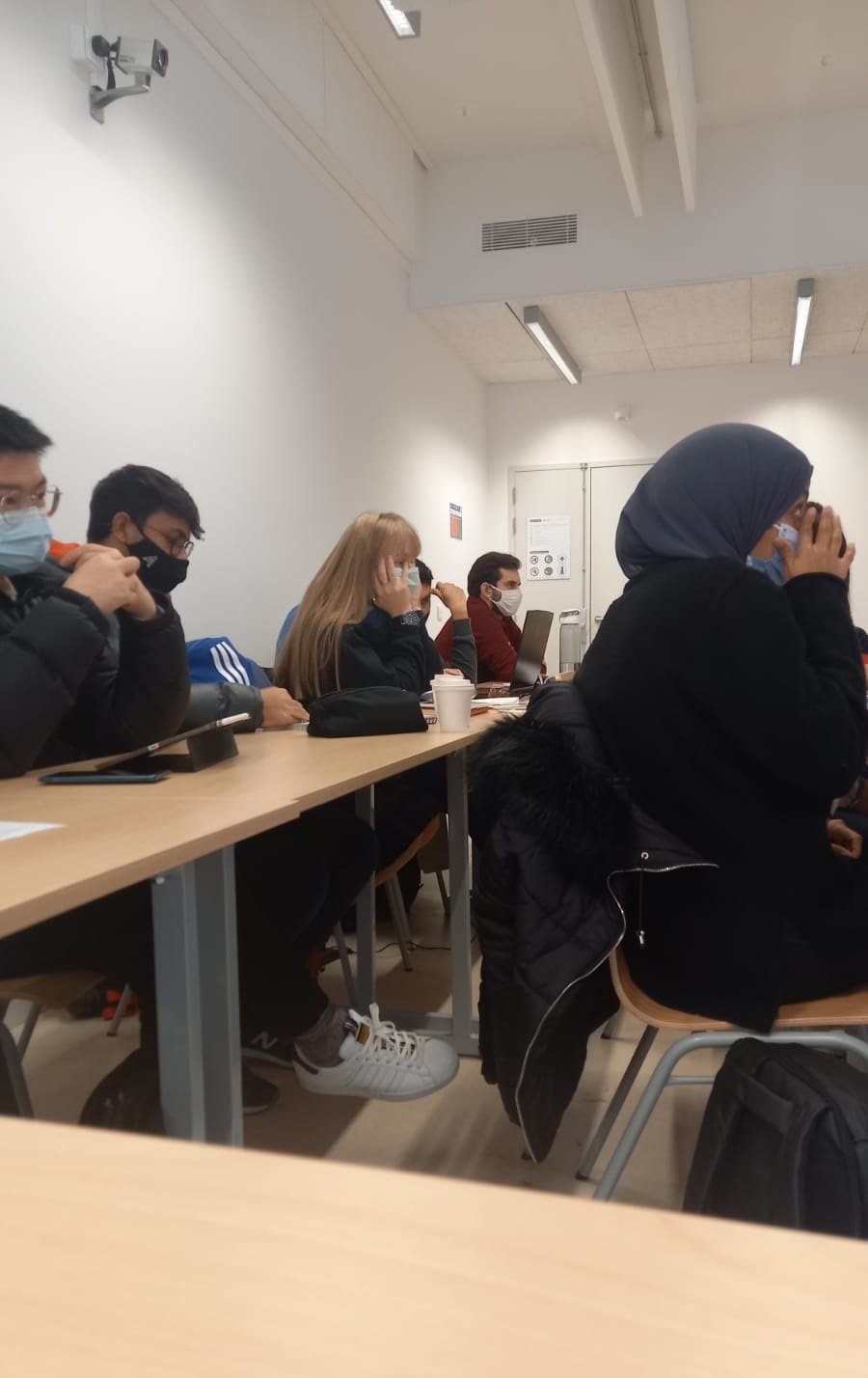
our standard “uniform” for class time
Perhaps these details are insignificant, but even such trifles make it possible to feel the atmosphere and exactingness of higher schools well.
Upon graduation, we had a mandatory internship (“stage”) for 4-6 months to write a diploma. Grande école cooperate with a large number of professional enterprises in the school-specific industry, so employment options are quite transparent. Internship interviews are no different than interviews for full-time jobs, and often finding an internship is extremely difficult and time consuming. Further, it is necessary to coordinate the topic of the diploma with the university, and if the topic is approved, the signing of a tripartite agreement between the university and the host organization. A similar system has been implemented in Belarus as a mandatory distribution, with a difference in the term of the contract (in Belarus it is 2 years).
At the end of the internship, the student submits the developed project to the defense of the commission, consisting of university teachers, industry representatives and moderators. After a series of questions and answers, the student was given a mark in the same range of 0-20, averaged from the marks of each member of the commission. My specialization was related to telecommunications, the internship was related to edge computing in the 5G network with application mobility. It sounds difficult, but after a year at the grande école and half a year of internship at the enterprise, it’s not scary at all 🙂

photo from my defense project
France’s high schools have been the subject of many years of controversy about creating inequality in society and privileged one group of graduates over another. Indeed, the prestige of higher education compared to the usual university path (see the diagram above) creates a feeling of “second-rate” the latter, due to the lack of strict selection and limited access there. Behind the scenes, French employers still give preference to graduates of higher education, even with other things being equal in the resume of candidates.

source: phdcomics.com
On the other hand, the preferences given to graduates are quite justified. Often, employers are looking for candidates for positions related to new developments that have not yet been reflected even in standards and official releases. Graduates of the grande école have not only a strong theoretical background, but also practical experience in industry-leading organizations. Even as beginners (“jeune travailleur”), they can offer employers a unique set of skills not available in other training systems.
My high school experience has been truly exceptional. rarely do foreigners have the opportunity to join the “higher echelons” of education in France without going through the teacher. For me personally, this also turned out to be a challenge, because I worked for a long time before graduating, and returning to the student regime was not easy, but exciting. At the moment, I continue my development in the field of telecommunications, but it is quite possible that I will continue my scientific activity in the future. In France, there are many opportunities for this and good funding.
I will be glad to answer questions about the master’s program, its format, features and internal structure both in the comments and as part of the continuation of this article. Thanks for your interest in my story!
